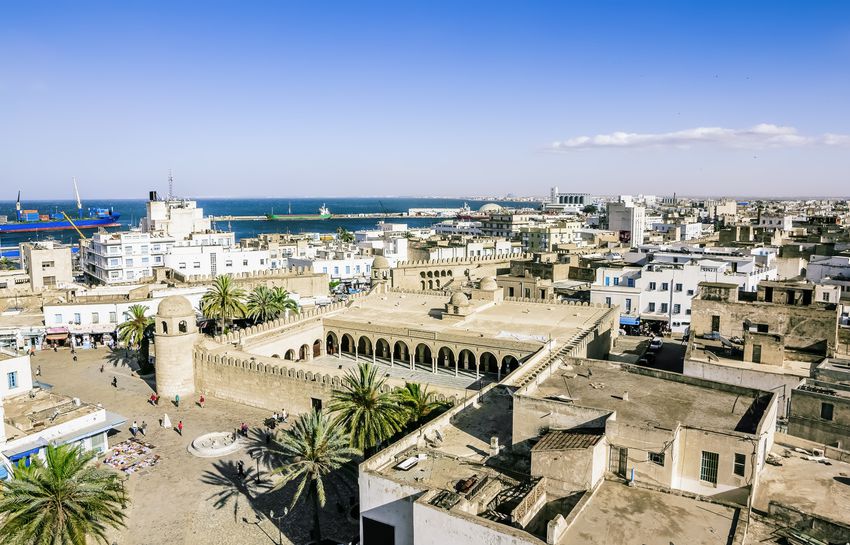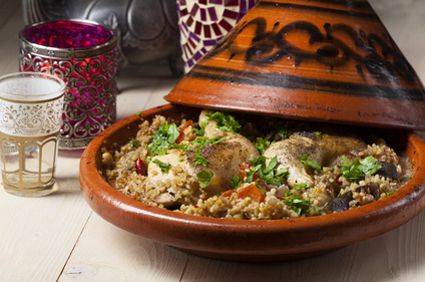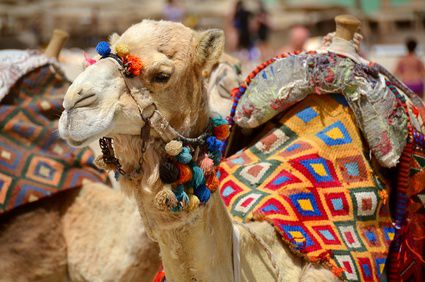
behavior in the arab and islamic world
- In North Africa, it is courteous to tip, the so-called „baksheesh“. In restaurants around ten percent of the invoice total is appropriate. In addition a lot of other services such as hair cuts expect baksheesh. Who does not tip is considered to be rude and arrogant.
- Hospitality is a big issue in the Arab-Islamic world. Do not refuse an invitation. Hospitality is based on reciprocity, it also expected when your business partner visits you in Germany.
- Pushing and threatening, such as „I would like to talk to your boss immediately“ is not usefuly in North Africa. Such threats result in quite the opposite, in deceleration and is considered very impolite.
- Get things done quickly, as it is usual in Germany, does not work. Everything is getting done with plenty of calmness. You have to take into account that dealing with authorities takes long processing times.
- Basically you should behave discreet and conservative in North Africa. For most women it is only allowed to have contact with their husband, which is why you should avoid any eye contact and touching with women. You should wait and see if the woman stretches out her hand to welcome you, if not, you do not give your hand to her.
- Do not disturb during prayer time. A devout Muslim prays five times a day. At sunrise, at noon, afternoon, sunset, and at the beginning of the night.
-
When you invite to a meeting, do not expect punctuality. In Islam the time is assigned to the sun. It’s about the content of the meeting, it takes as long as the personal relationship with the other party is coherent. When the time is right taking decisions can be very spontaneous and flexible.
-
Confidence-building is a crucial factor. Business is done with good friends and acquaintances. Remember, when the topic of price occurs, they expect a goodwill among friends.

-
Pork and alcohol are forbidden for Muslims. However, there are Muslims who do not take it so seriously with alcohol, so there are bars and restaurants where alcohol is served. In international hotels they basically serve alcohol.
-
Weigh well if you arrange a business appointment during Lent, at „Ramadan“. If you do, avoid eating, drinking and smoking in the presence of fasting Muslims before sunset, it could be noticed as an insult.
Useful everyday tips
-
In conflicts, it is advisable to use an mediator, because open conflicts are undesirable.
-
The traditional clothing (Dishdashah: long robe made of one piece) including headgear should not be imitated, because it could be considered a confrontation. Wear long pants and a long-sleeved shirt (for business meetings with jacket and tie). As women, you rather cover more than less. You should avoid the sight of arms, shoulders, knees and any feminine curves. Do not use headscarf or veil, if not explicitly required.
-
Never say that you are an atheist, this would be incomprehensible to Muslims and probably they would try to help / convert you.

-
Good topics for small talk are sports (football, horse-/ camel racing), economics, politics and mutual acquaintances. You should avoid talking about the opposite sex.
-
Keep in mind, especially during small talk, acknowledging one’s ignorance means the loss of face. Only ask questions your opposite can answer.
-
If you delegate a task, check constantly whether they are realized.
-
Do not give alms to children on the street. Ignore these beggings otherwise you have an entourage behind.
-
Negotiate taxi fares in advance, otherwise overpriced fares will be claimed. Note that there are many private chauffeurs that offer their service as a taxi driver, you should stay away from them.
-
Stop-and-search operations are on every strategically advantageous traffic location. Drive slowly, keep calm and turn your interior lights on. In general, they will waving you past.
-
Do not point your finger at other people, this can be misunderstood very easily.
-
Do not point your foot at another person. The bottom of the foot as well as the left hand is in the Islamic world (including India and some Asian countries) counted as unclean.
festivals and public holidays
In the Islamic world most holidays are calculated by the lunar calendar, which is why these data must be determined individually for each country.
